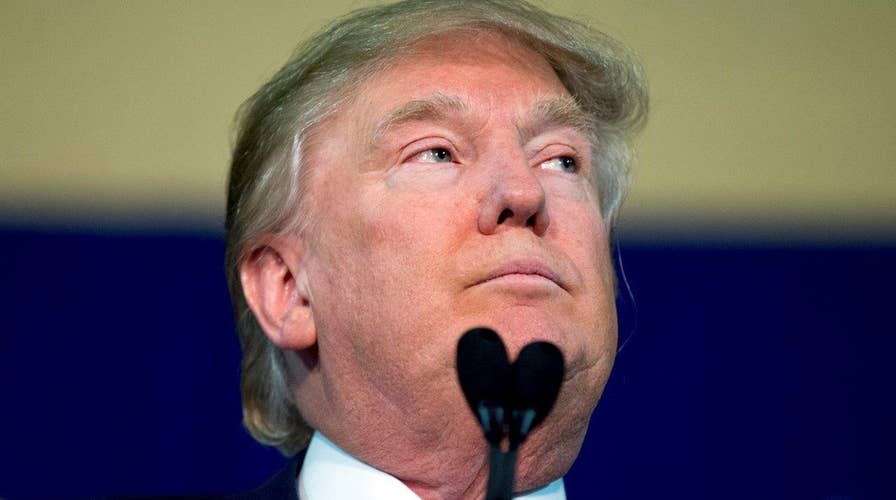Unpresidential move? Trump to skip final debate before Iowa
Republican rivals pounce on the decision #GOPDebate
The upside for Donald Trump in saying he won’t show up at Thursday’s Fox News debate here in Des Moines is that he is once again dominating the political conversation.
The downside is that some people think he’s ducking tough questioning and a final chance to face off against his competitors four days before the crucial caucuses.
The upside for Fox News in standing up to Trump by refusing to remove Megyn Kelly as a debate moderator is that it is defending the journalistic principle that politicians can’t dictate who gets to question them.
The downside is that the audience for the Iowa debate may shrink substantially, costing the network a huge sum in lost advertising.
And beyond all the finger-pointing, it will be a shame if Iowa voters don’t get to see the Republican front-runner in a long-planned debate against Ted Cruz and other rivals as they make up their minds.
In listening to Trump’s comments on the confrontation, it seemed to me that his dramatic vow to pull out is about far more than Megyn Kelly, or provocative responses issued by Fox News. Trump says there have already been six GOP debates. Trump says he shouldn’t have to stand on the same stage with people who are at zero percent (technically untrue, but the debate does include candidates whose standing in the low single digits is dwarfed by The Donald).
Perhaps Trump believes he has overtaken Cruz in Iowa and doesn’t want to do anything to blunt his momentum in this final stretch—in other words, sitting on his lead. As Cruz himself says, if Trump wins Iowa, he is extremely likely to win New Hampshire, where he has a 20-point lead, and then may be, in the senator’s word, “unstoppable.”
If so, Trump had to weigh the risk of doing combat in a high-profile debate against the risk of negative fallout if he withdrew. We’re already seeing Cruz, Jeb Bush and others assailing him for bailing on the event.
It’s silly to say that Trump is afraid to debate. He’s done very well at these televised spectacles, has gotten better at the craft, and won the Fox Business debate in Charleston hands down. So this is pure calculation on his part.
Trump is very shrewd about the media, so he had to know that making an issue of Kelly’s participation—he has been attacking her on and off since the August debate where she asked about the insulting way he has described some women—would not succeed. That is, there was no way that Fox or any other news organization would cave in and bench one of its top stars as a moderator.
When I interviewed him in Las Vegas last week, Trump told me he believed Megyn should withdraw as a moderator. But he didn’t seem particularly upset about the situation. I figured he was, in time-honored fashion, working the refs. And he had previously threatened not to attend a CNN debate unless the network gave $5 million to veterans’ charities, but showed up anyway.
Trump has launched brief boycotts against Fox before, hitting back against harsh criticism from some of its most prominent conservative commentators, including Charles Krauthammer, George Will, Steve Hayes, Jonah Goldberg and Rich Lowry, whose National Review has attacked the billionaire as a disaster for the conservative movement. Yet most of the time he has continued to do interviews with Bill O’Reilly, Sean Hannity, Greta Van Susteren, “Fox & Friends,” Chris Wallace and Bret Baier (the other moderators of that first GOP debate) and me.
His non-participation in Iowa would cede the stage to Cruz, Marco Rubio, Jeb Bush, Chris Christie, John Kasich, Ben Carson and Rand Paul, and probably leave Cruz as the top target. But such a debate would command much less public attention, especially if Trump is holding a competing event to raise money for wounded warriors.
With this last-minute move, Trump is again dominating the news coverage, and that has been a key part of his success as a businessman and television star making his first bid for elective office. He must believe it adds to his aura of strength to be taking on the most popular cable news network in this down-to-the-deadline drama.
But it also means that he has shifted the public argument from why he should or shouldn’t be president to why he’s avoiding a final showdown with his opponents before the people of Iowa vote. And that may be the biggest gamble in the most unorthodox presidential campaign in modern history.





